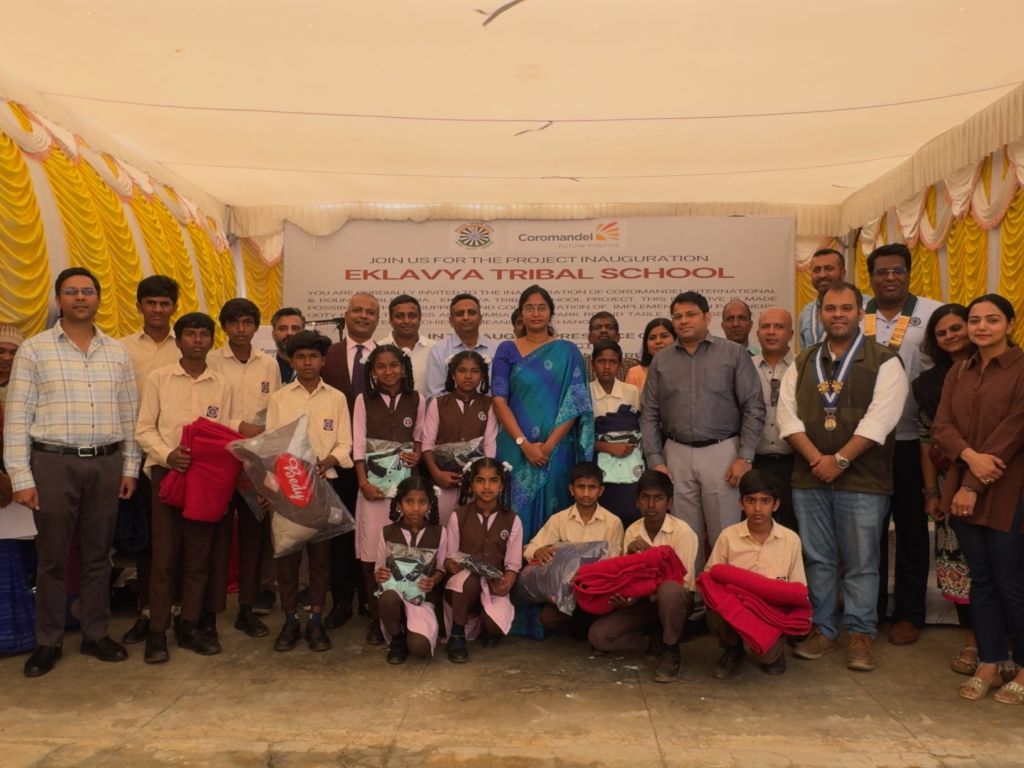Data from field experiments by reputed agricultural research institutes demonstrated 2.4% to 27% rise in yield as a result of using Nano DAP
Data from the field experiments conducted by several reputed Indian Council of Agricultural Research (ICAR) institutes and state agricultural universities across the country’s diverse agro-climatic zones have demonstrated that Nano DAP can enhance the yield of crops to the tune of 2.4% to 27% when applied at a recommended dose. This data showcases the unique advantage of Nano DAP in comparison to conventional DAP.
The experiments were held in farmers’ fields across India over 3,000 locations, led by a team of Agronomists who have studied the response of Gromor Nano DAP in a spectrum of crops, including rice, wheat, maize, moong, chickpea, red gram, groundnut, cotton, potato, onion, bottle gourd and cabbage, covering the states of Tamil Nadu, Andhra Pradesh, Telangana, Karnataka, Maharashtra, Odisha, West Bengal, Gujarat, Uttar Pradesh, Madya Pradesh, Chhattisgarh and Punjab. The data depicted that farmers who have started using Nano DAP are convinced with the results and begin to benefit from the Nano fertilizers.
Gromor Nano DAP was tested across the country as part of the research, including several reputed Indian Council of Agricultural Research (ICAR) Institutes such as India Agricultural Research Institute (IARI) – New Delhi, Indian Institute of Rice Research (IIRR) – Hyderabad, Indian Institute of Millets Research (IIMR) – Hyderabad, Indian Institute of Pulses Research (IIPR) – Kanpur, Central Institute for Cotton Research (CICR) – Nagpur, Indian Institute of Horticultural Research (IIHR) – Bengaluru and Indian Institute of Vegetable Research (IIVR) – Varanasi. It was also tested at various state agricultural universities such as Tamil Nadu Agricultural University – Coimbatore, Professor Jayashankar Telangana State Agricultural University (PJTSAU) – Hyderabad, Mahatma PhuleKrishiVidyapeeth (MPKV) – Rahuri, Dr. PanjabraoDeshmukhKrishiVidyapeeth (PDKV) – Akola and Punjab Agricultural University- Ludhiana besides unequivocally demonstrated in farmers’ fields.
The Indian agriculture faces a wide array of constraints such as decline in soil organic carbon, imbalanced fertilization, multi-nutrient deficiencies and less fertilizer response ratio besides impacts of climate change and huge sum of fertilizer subsidies. The scientists have started exploring cutting edge technologies like nanotechnology which enables atomic manipulation to achieve processes and products that are precise to deliver input without associated loss of nutrients synchronized with environmental issues. To resolve this, Coromandel International has been manufacturing Gromor Nano DAP since 2023.
In alignment with the national-level nanofertiliser recommendations, the recommended dose ofGromor Nano DAP at 500 ml per acre twice at 20-25 and 40-45 days after sowing or transplanting, along with 75% recommended dose of conventional phosphaticfertilisers for optimum output.
In order to gain insights, rapid absorption of Nano DAP in comparison to conventional DAP was assessed using high resolution electron microscopy, quick assimilation and turnover of amino acids using enzyme assays besides internalization in crops as stated by Dr K S Subramanian, Scientific Advisor, Coromandel International Limited and Former Director of Research, TNAU. Gromor Nano DAP was designed, developed and notified by Fertilizer Control Order (FCO) in 2023, at a time when the country is facing a phosphaticfertiliser availability crisis.





